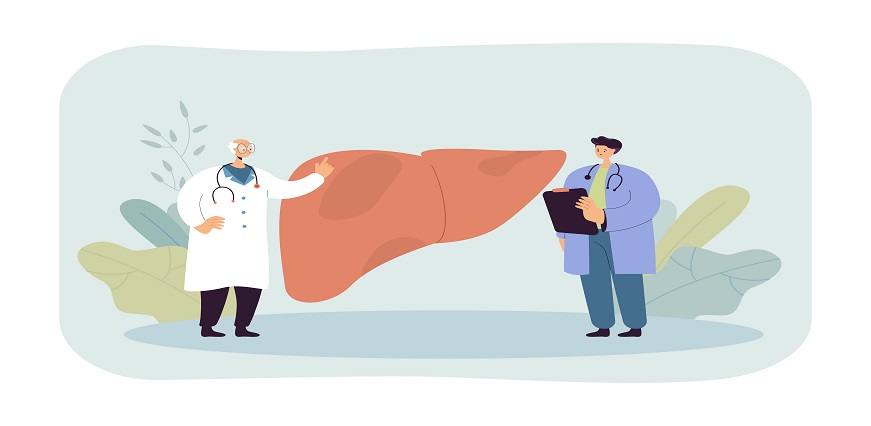





No lab centers are available in this city

Liver disease is a serious condition, often caused by alcohol abuse or ingestion of certain medications such as acetaminophen.
Any ailment that affects the liver is referred to as having liver disease in general. The liver is a crucial organ that is crucial to digestion, cleansing, and metabolism. Liver disease can be caused by a variety of factors, including viral infections, alcohol abuse, and fatty liver disease. Liver disease can lead to a build-up of toxins in the body and can eventually lead to liver failure. Treatment for liver disease depends on the underlying cause and may involve medications, lifestyle changes, or surgery.
Liver disease can be caused by a variety of things, including alcohol abuse, infection, and fatty liver disease. Alcohol abuse is the most common cause of liver disease in India. Infections, such as hepatitis C, can also lead to liver disease. Fatty liver disease, which is often seen in people who are obese or have diabetes, is another common cause of liver disease.
There are many different causes of liver disease, ranging from viral infections to chronic alcohol abuse. The following are a few of the most typical causes of liver disease:
There are many different symptoms of liver disease, and they can vary depending on the type of liver disease. Some common symptoms include fatigue, nausea, loss of appetite, dark urine, yellowing of the skin and eyes (jaundice), pain in the abdomen, and confusion. It is crucial to see a doctor if you experience any of these symptoms so they can properly diagnose and treat your condition.
There are many ways to prevent liver diseases. The best way is to avoid consuming alcohol or other drugs that can damage the liver. Other ways to prevent liver diseases include maintaining a healthy weight, eating a healthy diet, and exercising regularly.
There are many different types of liver disease, so the best way to treat it is to see your doctor and get a proper diagnosis. Depending on the type of liver disease, there are different treatments that can be effective. Some common treatments for liver disease include:
If you have any of the following symptoms, you should consult a doctor:
If you have any concerns about your liver health, it is always best to consult with a doctor. They will be able to perform tests and give you a diagnosis.
Liver disease is a serious condition that can have a major impact on your health. If you think you may be at risk, it's important to talk to your doctor and get tested. There are many different types of liver disease, and the sooner you catch it, the better. Your chances of living a long and healthy life can be improved with early diagnosis and treatment.
 Allergy Test
Allergy Test
 Anemia Test
Anemia Test
 Auto immune
Auto immune
 Blood disorder
Blood disorder
 Bone and Joint
Bone and Joint
 Cancer Test
Cancer Test
 Cardiology Test
Cardiology Test
 Covid Recovery
Covid Recovery
 Dengue Test
Dengue Test
 Depression
Depression
 Diabetes Test
Diabetes Test
 Fatigue
Fatigue
 Fever Test
Fever Test
 Full body
Full body
 Gastro Test
Gastro Test
 Gastrointestinal
Gastrointestinal
 Gynaecology Test
Gynaecology Test
 Heart Test
Heart Test
 HIV Test
HIV Test
 Hormone Test
Hormone Test
 Hypertension
Hypertension
 Immunity Test
Immunity Test
 Infectious Disease
Infectious Disease
 Infertility Test
Infertility Test
 Influenza Test
Influenza Test
 Iron Test
Iron Test
 Kidney Test
Kidney Test
 Liver Test
Liver Test
 Lung Test
Lung Test
 Nephrology
Nephrology
 Obesity
Obesity
 Orthopedics Test
Orthopedics Test
 Physician
Physician
 Pollution Health Checkup
Pollution Health Checkup
 Pregnancy Test
Pregnancy Test
 Prostate Test
Prostate Test
 Senior Citizen Test
Senior Citizen Test
 STD Test
STD Test
 Thyroid Test
Thyroid Test
 Tuberculosis Test
Tuberculosis Test
 Vitamin Test
Vitamin Test
 Women Health Test
Women Health Test
Sign up takes less than 60 secs and gives you access to your offers, orders and lab tests.
Looks like you are not registered with us. Please Sign up to proceed
OTP will be sent to this number by SMS
We have successfully received your details. One of the agents will call you back soon.
 To reach our help desk call 9213188888
To reach our help desk call 9213188888
No Lab Centers are available in this city
Looks like you are not registered with us. Please Sign up to proceed
OTP will be sent to this number by SMS
Not Registered Yet? Signup now.Looks like you are not registered with us. Please Sign up to proceed





 7982100200
7982100200.png)